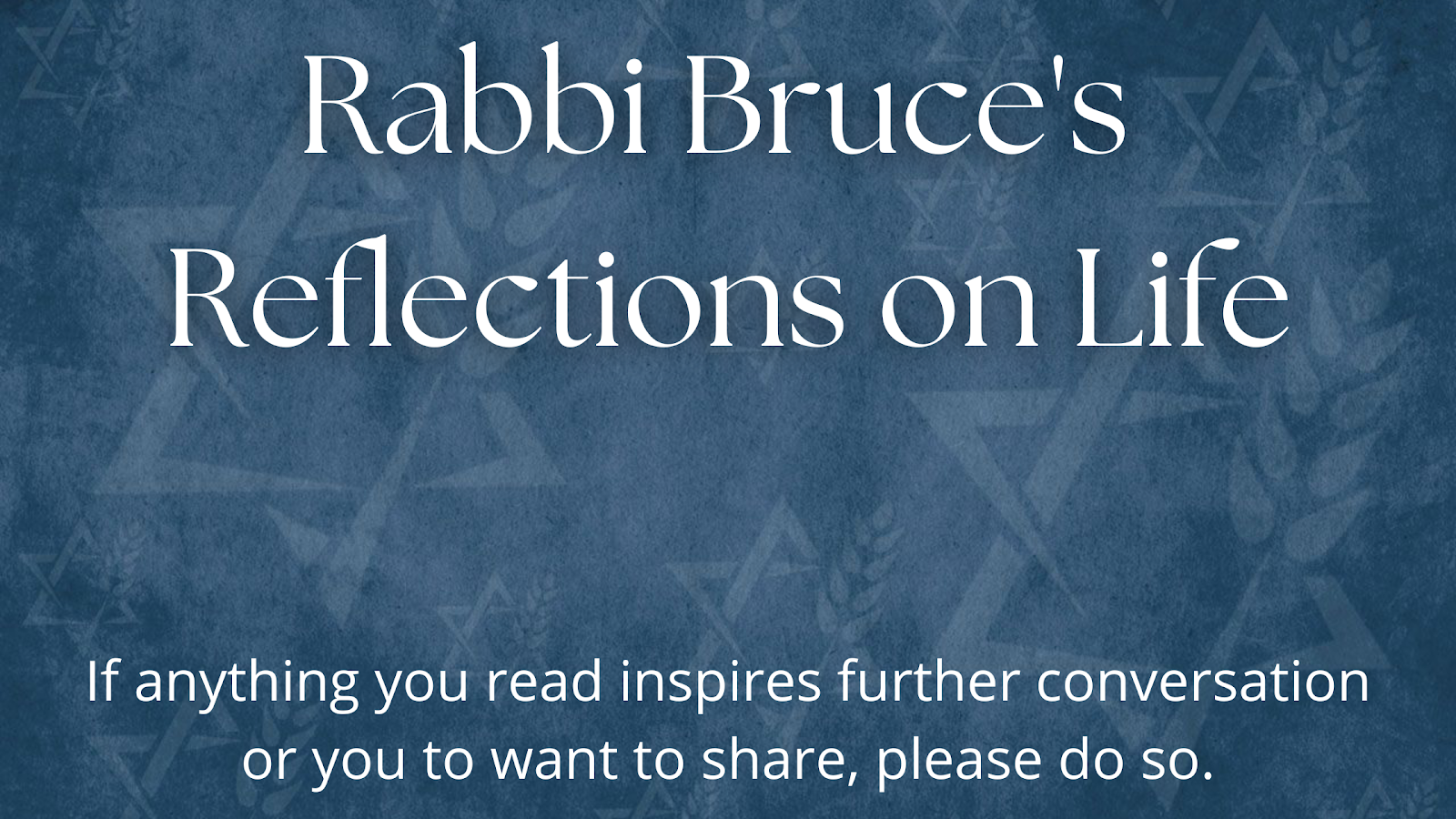27 Weeks: Sukkot: A Time to Rejoice?
Dear Friends,
A Time for Everything
3 There is a time for everything,
and a season for every activity under the heavens:
2 a time to be born and a time to die,
a time to plant and a time to uproot,
3 a time to kill and a time to heal,
a time to tear down and a time to build,
4 a time to weep and a time to laugh,
a time to mourn and a time to dance,
5 a time to scatter stones and a time to gather them,
a time to embrace and a time to refrain from embracing,
6 a time to search and a time to give up,
a time to keep and a time to throw away,
7 a time to tear and a time to mend,
a time to be silent and a time to speak,
8 a time to love and a time to hate,
a time for war and a time for peace.
9 What do workers gain from their toil? 10 I have seen the burden God has laid on the human race. 11 He has made everything beautiful in its time.He has also set eternity in the human heart; yet[a] no one can fathomwhat God has done from beginning to end. 12 I know that there is nothing better for people than to be happy and to do good while they live. 13 That each of them may eat and drink, and find satisfaction in all their toil—this is the gift of God. 14 I know that everything God does will endure forever; nothing can be added to it and nothing taken from it. God does it so that people will fear him.
15 Whatever is has already been,
and what will be has been before;
and God will call the past to account.[b]
16 And I saw something else under the sun:
In the place of judgment—wickedness was there,
in the place of justice—wickedness was there.
17 I said to myself,
“God will bring into judgment
both the righteous and the wicked,
for there will be a time for every activity,
a time to judge every deed.”
18 I also said to myself, “As for humans, God tests them so that they may see that they are like the animals. 19 Surely the fate of human beings is like that of the animals; the same fate awaits them both: As one dies, so dies the other. All have the same breath[c]; humans have no advantage over animals. Everything is meaningless. 20 All go to the same place; all come from dust, and to dust all return. 21 Who knows if the human spirit rises upward and if the spirit of the animal goes down into the earth?”
22 So I saw that there is nothing better for a person than to enjoy their work, because that is their lot. For who can bring them to see what will happen after them?
As I continue to struggle with the sudden loss of Sue27 weeks ago, I am reminded that there is a time to heal, a time to mend, a time to dance, a time to laugh, and a time for peace.
During our Memorial Prayers on Yom Kippur, I sat next to one of you at the Yizkor service after sharing some thoughts about Sue's constant reminders to me that her engagement ring continued to sparkle. Sue made a habit of telling me that often which I now realize was her way of telling me about how much our love continued to sparkle. During the service this person who knows who they are, held my hand, hugged me, put their head on my shoulder, and continued to smile which provided me the strength to realize that Sue's smile, sparkle, hugs, snuggles, and constant presence don't need to disappear just because she is not physically here.
There is another custom during Sukkot of inviting visitors into our Sukkah. The custom is called Ushpizin, the Aramaic word for invited guests. We invite someone into our Sukkah and I mentioned to one of you, I didn't want to invite Sue because I would have to say goodbye to her when she left (as you may remember, her death was so unexpected that we never said goodbye). You told me that if she did come to visit me in the Sukkah, I would NOT have to say goodbye. I could feel her presence constantly and could say "until we meet again" or in Hebrew, "lehitraot."
A colleague of mine taught me the words of Rabbi Alan Lew of blessed memory. He taught, "Joy is a deep release of the soul, and it includes death and pain. Joy is any feeling fully felt, any experience we give our whole being to. We are conditioned to choose pleasure and to reject pain, but the truth is, any moment of our life fully inhabited, any feeling fully felt, any immersion in the full depth of life, can be the source of deep joy."
If he is correct, then I should be filled with deep joy because Sue and I had a relationship where we were immersed in the full depth of life and that relationship continued to sparkle.
I continue to try to find that joy....your constant support and outreach remind me of her kindness and that is a source for rejoicing.
Shabbat Shalom, Sabbath Peace, Moadim l'simcha, Festivals to rejoice,
Rabbi Bruce Aft

Comments
Post a Comment